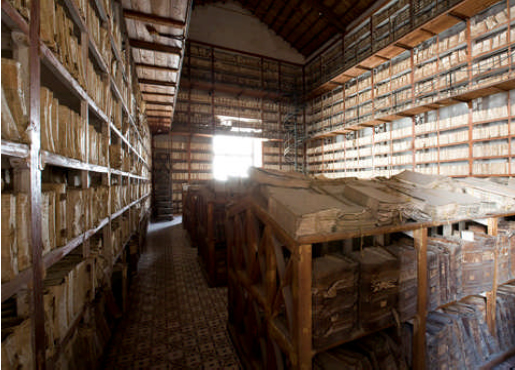AR.C.H.I.ves – A comparative history of archives in late medieval and early modern Italy
Most historians work in archives, but generally have not made archives their primary object of research. While we tend to be preoccupied by documentary loss, what is striking is the sheer amount of paperwork preserved over the centuries. We need to study the reasons for this preservation.
The project’s general aim is to study the history of the archives and of the chanceries that oversaw their production storage and organization in late medieval and early modern Italy from the late twelfth century to the opening of the Archivi di Stato that – after the ancient states’ dissolution – preserved documents as tools for scholarship rather than administration.
Italian states were at the forefront of the institutionalization of documentary preservation on a large scale, and the country as a whole has an extraordinary rich and diverse archival patrimony. Because of its fragmented political history, concentrating on Italy means having access to the archives of a wide variety of regimes; archives, which lend themselves to comparison, even though Italian archives often seem disorderly to scholars who have no local knowledge. However, this project builds precisely on the basis of the plurality of Italy’s archives, and on their overwhelming closeness to the pre-modern institutions that created them. The proposed research intends to approach their history in a doubly comparative framework, by focusing on a series of seven case studies of chanceries disseminated across Italy: Venice, Modena, Florence, the Vatican, Milan, Naples, and Palermo; and by comparing Italian chanceries with those of other European and non-European states and cities, chiefly by organizing and encouraging exchanges between scholars working in different countries.
Secondly, while histories of archives are generally inscribed in the framework of institutional history, the proposed research wishes to test the chanceries’ interactions within a wider social and cultural context, by focusing on six interconnected themes:
1) the political role of archives, and the efforts devoted by governments to their development;
2) their organization, subdivisions, and referencing systems;
3) the materiality of record-keeping;
4) the social characteristics of the staff, their education and selection;
5) the archives’ place in society, including their access and (mis)use;
6) their use by historians.
As implied in the choice of these themes, the project is deliberately interdisciplinary, and aims at the mutually beneficial exchange between social, political, and cultural historians, historians of art, and archivists.
The research team
The project has a deliberately long timeframe, it tackles a large variety of sources, and it needs to combine local knowledge with a wider vision. In order to tackle these challenges the project will employ a research team trained in different disciplinary skills, formed of five people:
▪ The Principal Investigator, Dr Filippo de Vivo, who will also be responsible for supervising the team’s work as a whole.
▪ Two post-doctoral research assistants, Dr Andrea Guidi, a specialist of the Florentine Chancery, and Dr Alessandro Silvestri, a specialist of the Aragonese Chancery of Palermo.
▪ Two PhD students who will research specific themes on the basis of one or two case studies alone. Mr Fabio Antonini will work on the theme of Archives and the writing of history, especially the use of archival sources by late medieval and early modern antiquarians and historians, with special reference to the Venetian case. Mr Giacomo Giudici works under the joint supervision of Dr de Vivo and Professor Evelyn Welch (QMUL) on the theme of “Paper and place”: the physical and material aspects of documentary evidence, such as the architecture and furnishings of the repositories, or the decoration and making of the records, with special reference to the cases of Milan and Venice.
There will be regular workshops with invited international participants, where team members will be able to present their findings before discussants. A final conference will conclude the project and it is expected that selected papers from the conference and the workshops will be published in a volume edited jointly by the PI and the PDRAs.
A first workshop on “Recent tendencies in the history of archives, documentary production and organization” has been planned for the 12th of December 2012.
The project is funded by a European Research Council Starting Grant
SOURCE:
Recent tendencies in the history of archives, document production and organization. Conference on Wednesday, the 12th of December 2012, Birkbeck, University of London, 2-6pm. Dreyfus Room, 26 Russell Square (TBC)
Conference program
